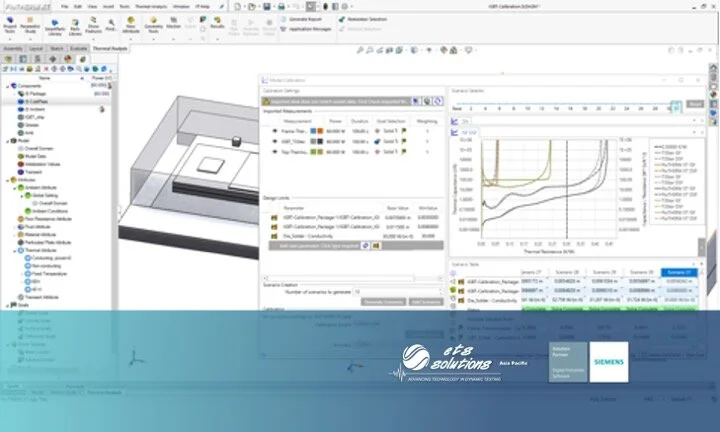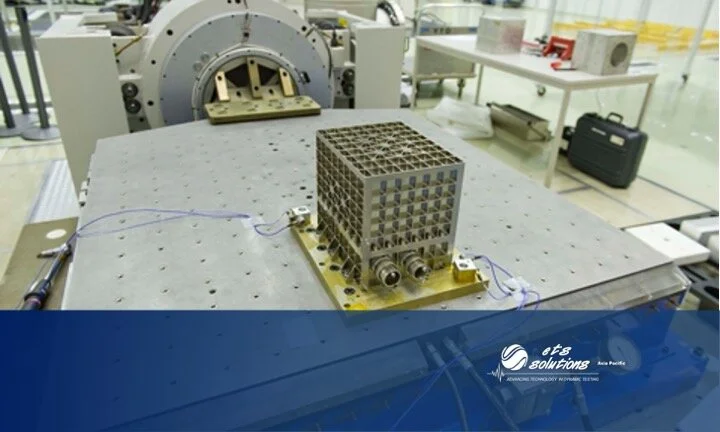Vibration measurement is complex because of its many components: displacement, velocity, acceleration, and frequencies. Vibration measurement is an effective, non-intrusive method to monitor machine condition during start-ups, shutdowns and normal operation. Regular vibration monitoring can detect in a power plant shaft lines, deteriorations and defects of a number of various structural mechanical conditions, for example cracks, bearing faults, coupling damage, imbalance as well as interruptions in the electric grid.
Gas Turbine Vibration Monitoring
Vibration measurements are commonly considered to be a sound indicator of a machine’s overall health state (global monitoring).The general principle behind using vibration data is that when faults start to develop, the system dynamics change, which results in different vibration patterns from those observed at the healthy state of the system monitored.
Vibration Analysis on a conveyor unit
Belt conveyors are an integrated transmission and carrying mechanism with length sometimes extending several thousand meters. In traditional design and analysis of belt conveyors, vibration and impact are usually ignored and only static design is considered. However, to ensure the safety of conveyor operation for this restricted analysis, designers must increase the safety factor, which increases production costs. Many research groups have conducted dynamic analysis of large belt conveyors to reduce production cost and optimize conveyor performance. The conveyor belt was first modeled as an elastic body and then a viscoelastic body to incorporate viscoelastic characteristics of belt cover layer.
Electronic Components Reliability Testing
If your company makes planes, trains, automobiles, medical devices, computers, and communication systems, or you are a large electronic device supplier, the reliability of your products in the field is crucial to your business success. The growing market for electric and hybrid vehicles is increasing the pressure on life-time performance of the devices that power them.
Automatic Thermal Model Calibration
What are transient thermal measurements and structure functions, their advantages, and how we use them tcalibrate and improve our semiconductor thermal models, Simcenter Flotherm is a unique combined test and simulation solution for automatic calibration of semiconductor package thermal models that maximizes simulation accuracy. This helps engineers to better optimize electronics thermal design for reliability, reducing field failures, and to reduce overdesign-linked costs.
Sine Vibration Testing
Sine Vibration Testing may be considered as the most basic vibration testing method used. This type of vibration testing requires less complex parameters compare to other type of vibration testing. Knowing the nature of sinusoidal signal, makes this type of vibration testing easier to understand and to get familiar with. Though, easier to understand does not make it less important compare to other type of vibration testing. Sine vibration testing may still be at the top rank when we are thinking of dynamic characteristic measurement.
Optimize Thermal Performance of Power Adapters with Simcenter Flotherm
In the case of the power adapters that NXP Semiconductors’ Smart Power Division are developing thermal considerations have really come to the fore, driven by the trends we see in mobile power adaptors, which are getting smaller and have a higher output power. Thermal limits are now constraining all aspects of the design.
The Importance of Junction Temperature in Electronics Components Thermal Reliability
John Wilson, technical marketing engineer at Mentor, a Siemens Business, explains how junction temperatures have a direct correlation to product reliability and performance. Using tools such as Simcenter™ T3STER™ and Simcenter™ Flotherm™ enable users to tackle the challenge of designing for reliability without the need for prototyping.
Simcenter Flotherm - accurate simulations for electronics thermal design
Simcenter Flotherm - The goal of electronics thermal design is to accurately predict component junction temperatures to ensure that they are within specification. CFD allowed designers to predict the flow of cooling air, and include 3D thermal simulations of the board and components, increasing the need for more accurate component level modeling.
Definition of Reliability and Validity
Reliability and Validity these two terms are sometimes used interchangeably in research and evaluations. Reliability and validity are concepts used to evaluate the quality of research. They indicate how well a method, technique or test measures something. Reliability is about the consistency of a measure, and validity is about the accuracy of a measure.
Simcenter Help Facebook to significantly improve its new server design and achieve thermal efficiency
For its first datacenter in Prineville, Oregon, Facebook set out to significantly improve its power efficiency, cost, reliability, serviceability and environmental footprint. To this end, a holistic approach was used to redesign many dimensions of the datacenter and servers. This white paper1 focuses on the Facebook server design, combining aspects of power, motherboard, thermal and mechanical design.
Is your electronics cooling software fit for purpose?
More than just a CFD code, STAR-CCM+ is a complete multiphysics toolbox, able to solve flow, thermal and stress problems involving multiple phases. From liquid jets, to water ingression, STAR-CCM+ allows you to simulate any cooling strategy that you can define and even the effect of what happens when those strategies go wrong.

















